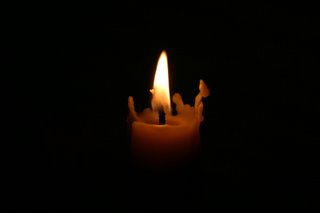
In our culture, we're taught to fear the darkness. It's built into our myths and our popular sages. But the darkness might well be the best thing that could happen to you.
.
Our visual capacities in everyday life are bombarded by lots of external images. Often, there isn't much room for other images to arise, other than in our imaginations. That's where a dark retreat (mun mtshams, a traditional Tibetan spiritual practice that a Western, non-monastic Buddhist can experience by sitting in a sound- and light-proof room ) could help out.
.
The idea of the dark retreat is not only do you create a setting in which you have no visual stimuli, so that the eyes relax, but you also sufficiently relax your body and your mind so that the deeper aspects of your core awareness can arise. In dark retreat, the practitioner lives in complete darkness--eating, sleeping, meditating, and simply existing in a world without external light. For half a day, a few days or even longer.
.
The idea of the dark retreat is not only do you create a setting in which you have no visual stimuli, so that the eyes relax, but you also sufficiently relax your body and your mind so that the deeper aspects of your core awareness can arise. In dark retreat, the practitioner lives in complete darkness--eating, sleeping, meditating, and simply existing in a world without external light. For half a day, a few days or even longer.
.
That's when the truths, along with lights and visions, can become evident.
3 opmerkingen:
Fascinating ...
How many would cringe in fear at the prospect of such an endeavour?
I did at the moment.
Peace and Blessings
Lil Sparrow
Have to agree with you. I don't know why, but it seems my best time for contemplation is at night, when the curtains are drawn, everyone else is asleep, and I'm alone with my thoughts.
Very nice post on dark retreat. Yes, in Chinese culture, we were taught to fear darkness - it associates with death and horror. Your thought on dark retreat is indeed very intriguing!
Peace
Helen
Een reactie posten